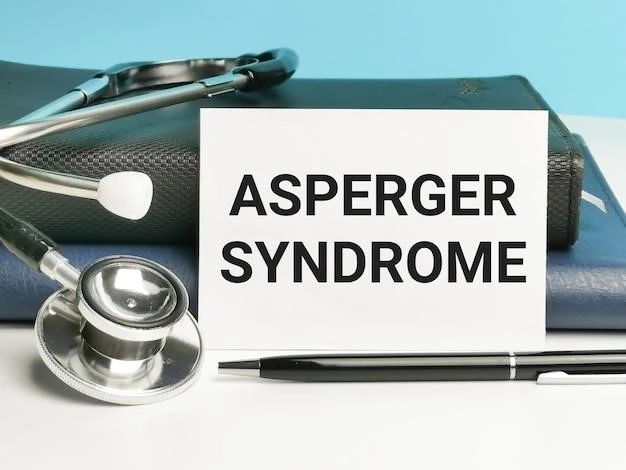Disease ⎼ MASS Syndrome
Introduction to MASS Syndrome
MASS syndrome, also known as Mitral Valve Prolapse, Aortic Dilation, Skin, and Skeletal findings syndrome, is a rare genetic disorder affecting multiple systems in the body. It is characterized by specific abnormalities in the heart valves, aorta, skin, and skeleton. The condition was first described in the medical literature in the late 1980s, and since then, research has aimed to understand its underlying mechanisms and improve diagnosis and management strategies.
Individuals with MASS syndrome may experience a range of symptoms and complications related to the heart, skin, and skeletal system. Due to its complex nature, a multidisciplinary approach involving cardiologists, geneticists, dermatologists, and orthopedic specialists is often necessary for comprehensive care. Understanding the pathophysiology of MASS syndrome is crucial for early detection, accurate diagnosis, and timely intervention to prevent potential long-term complications.
History and Background
The history of MASS syndrome traces back to the late 1980s when it was first reported in medical literature. The acronym MASS stands for Mitral Valve Prolapse, Aortic Dilation, Skin, and Skeletal findings, reflecting the diverse range of systems affected by this rare genetic disorder. Over the years, advancements in medical research have shed light on the underlying genetic mutations and pathophysiology associated with MASS syndrome.
Researchers have identified specific genetic variants that contribute to the development of MASS syndrome, highlighting the importance of genetic testing in diagnosing affected individuals and understanding familial patterns of inheritance. The condition’s complex nature necessitates a multidisciplinary approach, combining expertise from cardiology, genetics, dermatology, and orthopedics to provide comprehensive care for patients.
As the understanding of MASS syndrome continues to evolve, ongoing research aims to uncover novel treatment strategies, enhance diagnostic accuracy, and improve patient outcomes. The historical progression of knowledge surrounding MASS syndrome has paved the way for advancements in personalized medicine and tailored interventions to address the unique needs of individuals with this rare disorder.
Causes and Risk Factors
MASS syndrome is primarily caused by genetic mutations that impact the development of the heart valves, aorta, skin, and skeleton. These genetic abnormalities can lead to structural abnormalities in the heart, including mitral valve prolapse and aortic dilation, as well as characteristic skin and skeletal findings. The inheritance pattern of MASS syndrome is often autosomal dominant, meaning that a mutation in one copy of the gene is sufficient to cause the condition.
Individuals with a family history of MASS syndrome are at an increased risk of inheriting the genetic mutation and developing the disorder. Mutations in specific genes involved in connective tissue formation and maintenance have been associated with MASS syndrome, highlighting the role of these genes in the pathogenesis of the condition. While the precise mechanisms by which these genetic mutations lead to the diverse manifestations of MASS syndrome are still being elucidated, ongoing research continues to explore the underlying molecular pathways involved.
Symptoms and Clinical Presentation
Patients with MASS syndrome may present with a range of symptoms affecting the cardiovascular, integumentary, and musculoskeletal systems. Common cardiovascular manifestations include palpitations, chest pain, and shortness of breath, often due to mitral valve prolapse or aortic dilation. Skin findings in MASS syndrome can include hyperextensible skin, easy bruising, and abnormal scarring, while skeletal abnormalities may manifest as joint hypermobility or skeletal deformities.
Other clinical features of MASS syndrome may include fatigue, dizziness, and joint pain, reflecting the multisystem nature of the condition. Individuals with MASS syndrome may also be at increased risk of developing complications such as arrhythmias, aortic dissection, or orthopedic issues. Due to the variability in symptom presentation, a comprehensive clinical evaluation by healthcare professionals familiar with the syndrome is essential for accurate diagnosis and management.
Diagnosis and Differential Diagnoses
Diagnosing MASS syndrome involves a thorough evaluation of the patient’s clinical history, physical examination findings, and diagnostic tests. Imaging studies such as echocardiography are essential for assessing cardiac abnormalities like mitral valve prolapse and aortic dilation. Genetic testing may also be recommended to identify specific genetic mutations associated with MASS syndrome.
It is crucial for healthcare providers to consider differential diagnoses when evaluating a patient for MASS syndrome, as the condition shares clinical features with other connective tissue disorders such as Marfan syndrome and Ehlers-Danlos syndrome. Differential diagnostic considerations also include assessing for primary cardiac conditions that can present with similar cardiovascular manifestations. A comprehensive differential diagnosis process ensures accurate identification of MASS syndrome and appropriate management strategies.
Treatment Options
The management of MASS syndrome aims to address the specific manifestations of the disorder and mitigate associated complications. Treatment strategies are often tailored to the individual patient’s symptoms and severity of the condition. In cases where cardiac abnormalities such as mitral valve prolapse or aortic dilation are present, close monitoring by cardiologists and potential surgical intervention may be necessary.
Patients with skin and skeletal abnormalities associated with MASS syndrome may benefit from dermatological and orthopedic interventions to address these manifestations. Symptomatic management of pain, fatigue, or other systemic symptoms may also be required to improve the patient’s quality of life. Regular follow-up appointments with a multidisciplinary healthcare team are essential to monitor disease progression, adjust treatment plans as needed, and provide ongoing support.
Prognosis and Complications
The prognosis for individuals with MASS syndrome varies depending on the severity of cardiac, dermatological, skeletal, and other associated manifestations. While some patients may experience a relatively stable disease course with proper management, others may be at higher risk of developing complications such as arrhythmias, aortic dissection, or joint problems.
Early detection, regular monitoring, and appropriate intervention can help mitigate the risk of complications and improve long-term outcomes for individuals with MASS syndrome. However, the multisystem nature of the disorder underscores the importance of a coordinated healthcare approach involving cardiologists, geneticists, dermatologists, and orthopedic specialists to address the diverse clinical presentations and potential complications associated with the condition.
Coping Strategies and Support
Coping with MASS syndrome can be challenging, given its impact on various aspects of an individual’s health and well-being. Patients diagnosed with MASS syndrome may benefit from psychological support, education about the condition, and access to resources that facilitate coping strategies. Connecting with support groups or patient advocacy organizations can provide valuable emotional support and opportunities to share experiences with others facing similar health challenges.
Engaging in lifestyle modifications such as regular exercise, a balanced diet, and stress management techniques can also contribute to overall well-being for individuals with MASS syndrome. Open communication with healthcare providers, adherence to treatment plans, and proactive involvement in one’s healthcare decisions are essential for optimizing health outcomes and maintaining a positive outlook while managing the complexities of the condition.
Research and Future Directions
Ongoing research on MASS syndrome focuses on advancing our understanding of the genetic underpinnings, pathophysiology, and clinical management of this complex disorder. Genetic studies aim to identify additional gene mutations associated with MASS syndrome, providing insights into the diverse manifestations observed in affected individuals and potential targets for future therapeutic interventions.
Future directions in MASS syndrome research include investigating novel treatment modalities, refining diagnostic criteria, and exploring the impact of lifestyle factors on disease progression. Collaborative efforts between researchers, clinicians, and patient advocacy groups are integral to furthering knowledge about MASS syndrome and improving patient outcomes. By combining genetic insights with clinical expertise, the field strives to enhance early detection, personalized treatment approaches, and ultimately, better quality of life for individuals living with this rare genetic disorder.

Conclusion
In conclusion, MASS syndrome presents as a rare genetic disorder characterized by abnormalities in the heart valves, aorta, skin, and skeleton. The multisystem nature of the condition necessitates a multidisciplinary approach to diagnosis, treatment, and ongoing management. With advancements in genetic research, imaging technologies, and therapeutic strategies, healthcare professionals are better equipped to identify and address the complexities of MASS syndrome.
While challenges may arise in coping with the physical and emotional impact of the disorder, access to tailored healthcare services, support networks, and a proactive approach to self-care can significantly improve the quality of life for individuals with MASS syndrome. Continued research endeavors hold promise for uncovering new insights into the pathogenesis of the syndrome, refining treatment options, and enhancing patient outcomes in the future. By fostering collaboration among researchers, clinicians, and patients, the field can strive towards improved care and support for those affected by MASS syndrome.
